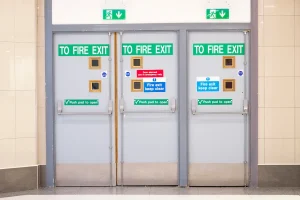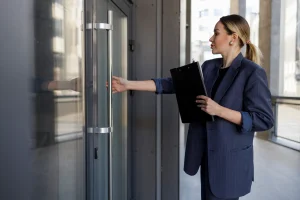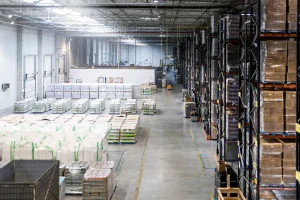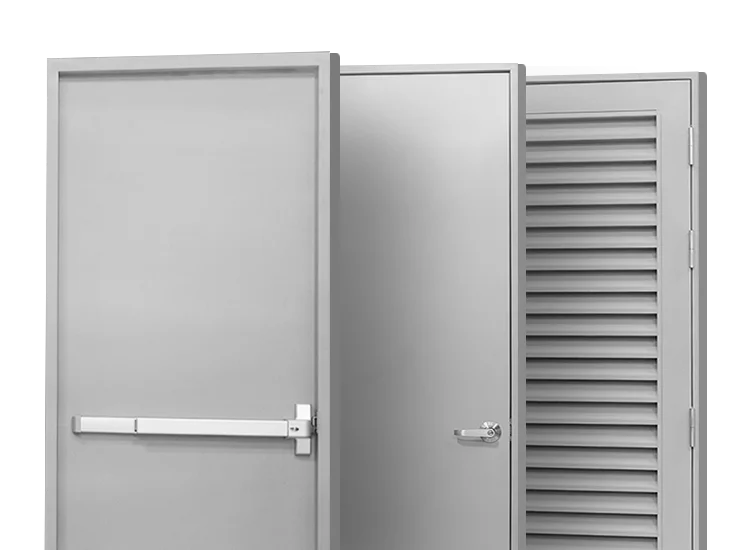Think about the last time you entered a company or building with a door that just didn’t open or close quite right. It probably left a negative impression, right? The perfect commercial door plays a much bigger role than you may have thought. It’s not just about functionality; it also sets the tone for your entire business.
Everything from improving security and increasing accessibility to adding a sleek, professional look makes choosing the right door an extremely important decision to make. This article will help you understand the types of commercial doors and how to choose the perfect fit for your business needs. Read on!
What Exactly is a Commercial Door?
A commercial door is a high-performance, heavy-duty door made for all types of businesses, industrial facilities, and public buildings. Constructed to put up with heavy traffic, these doors are designed with security, functionality, and safety in mind, in accordance with very strict standards that provide the qualification for commercial use.
Commercial doors are often constructed from galvanized steel, aluminum, glass, and wood because they handle frequent operation with high resistance to wear over time. They also come in many styles, from loading area roll-up doors to fire-rated doors for increased safety, to automatic sliding doors for convenience. Each is designed to fit the unique needs of different commercial fields.
What Sets Commercial Door Apart from Residential Door?
Due to the demands associated with business environments, commercial doors tend to be quite different in features, purpose, and unique advantages from residential doors.
Features
While residential doors are primarily made of wood or fiberglass and for aesthetic appeal, commercial doors are made of galvanized steel, aluminum, or toughened glass. Hence, they are durable enough to bear the huge traffic and fluctuations in weather conditions. Commercial doors also have special features in regard to fire resistance, insulation, soundproofing, and access control technologies, which are given less emphasis in residential doors.
Purpose
The primary function of residential doors is to provide privacy and security, adding curb appeal to the house. However, commercial doors are built to address the security, safety, and accessibility requirements of non-residential buildings. They comply with numerous strict codes related to fire protection, access, and, in some regions, energy efficiency. These, then, make them suitable for high-traffic areas such as hospitals, schools, and office buildings.
Unique Benefits
Commercial doors have several advantages compared to residential doors, including increased durability, enhanced security, and choices for customization. A fire-rated commercial door would, for example, keep the fire in one area, hence being very important in big buildings.
Related Post: Discovering the Advantages of Steel Doors for Residential Use
Exploring the Different Types of Commercial Doors
Let’s break down the considerations needed when exploring the different types of commercial doors, from the materials used per door, to the functionality inherent in each door type.
Types of Commercial Doors by Material
Choosing the right material for a commercial door depends on the specific needs of the property. Here are some common materials used:
1. Galvanized Steel Doors
Galvanized steel doors are among the most ideal for businesses concerned with security and durability aspects. These are treated by galvanization, a process in which the steel is covered with a layer of zinc that lends resistance against rust and corrosion and protects it from wear. In that respect, galvanized steel doors are greatly valued at places such as industrial facilities, warehouses, and areas where weather or heavy use might degrade the door.
2. Aluminum Doors
Aluminum doors are in demand for storefronts and office buildings. Aluminum does not corrode, and hence these doors are suitable for places that face humidity or any other environmental issues. Most of the time, they are mixed with glass panels, adding to the modern look while remaining resilient.
3. Glass Doors
A great usage of these doors has taken place in retail shops, offices, and showrooms where their appearance and aesthetic view become of uttermost importance. The toughened or reinforced glass used in them provides added safety to the users, while many glass doors come with double and triple glazing to enhance energy efficiency.
4. Wood Doors
Solid wood doors are less common in commercial applications, except in offices, hotels, and places where an upscale or traditional look is needed or required. They can provide good insulation and can be fire-rated, but they may involve more maintenance than steel or aluminum doors because of potential warping or degradation over time.
5. Fiberglass Doors
Light, yet strong and resistant to moisture and chemicals, these are the perfect choice for those facilities that have special environmental needs, like laboratories and hospitals. The fiberglass door may appear as a wood door but is highly durable and requires minimal maintenance.
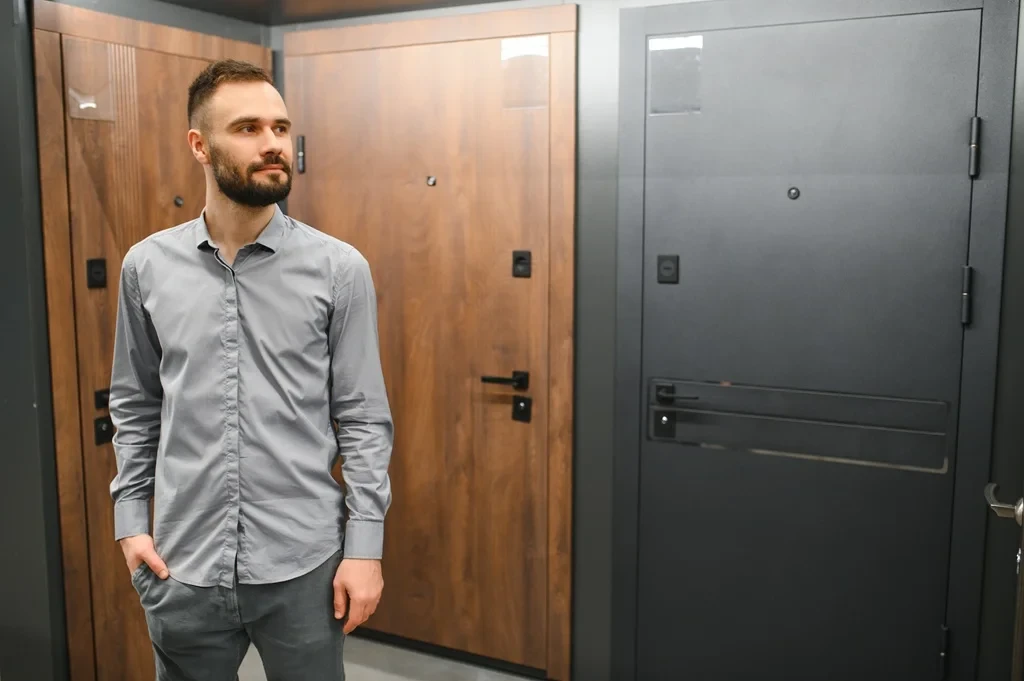
Types of Commercial Doors by Functionality
Commercial doors serve a variety of functional purposes, often beyond simply providing access. Here are some based on their intended use:
1. Roll-Up Doors
These are the commonly used doors in warehouses, garages, and loading docks. Roll-up door construction units are horizontal slats or panels that roll into a coil above the door opening. They are designed for heavy use to secure large openings and can either be manual or motor operated.
2. Fire-Rated Doors
Fire-rated doors impede the propagation of fire and smoke, serving their purpose for a restricted time, usually from 20 minutes up to three hours. Constructed of materials such as steel or fire-resistant wood, these doors are imperative in very hazardous areas in commercial buildings like stairwells and utility rooms. These help protect the occupants and reduce the loss of properties during an emergency.
3. Automatic Sliding Doors
These exist in retail stores, hospitals, and airports. Automatic sliding doors operate independently. Sliding to open and shut, often these are activated by a motion sensor. They are convenient and accessible, especially in areas with heavy foot traffic or where hands-free operation is preferred. The panels for the automatic doors are mostly made of glass so that visibility is maintained along with aesthetic appeal.
4. Revolving Doors
These are found at office buildings, hotels, and most high-rise building entrances. They allow the continuous flow of people while minimizing the heat or air conditioning lost to and from the building. The revolving door is also energy-efficient, hence reducing drafts while maintaining the internal temperature of the building.
5. Swing Doors
Swing doors come in aluminum, glass, and even steel; thus, finding wide applications in offices, healthcare, amongst others. The opening and closing occur on hinges, with or without the facility of an automatic operator. They are versatile to say the least, as they may also be fitted with fire-resistance or soundproofing to meet the commercial needs of the location.
6. Security Doors
Security doors come with heavy reinforcement for maximum protection in high-risk areas, mostly by adding extra locks and alarms. Normal panel steel or materials to withstand impact will be the material used to manufacture such a door. These are normally deployed in facilities storing high-value merchandise or sensitive information, such as data centers and banks.
Importance of Selecting the Right Commercial Door
Choosing the right commercial door is important in ensuring safety, security, and efficiency in business space. The right door can enhance accessibility, meet all the needed safety codes, and withstand tugging at high-traffic use for the durability and security needed in a host of diverse commercial environments.
Moreover, choosing a door that suits specific functional needs—fire-rated, automatic, or roll-up, for example—optimizes operations and adds to professional appearance. Investing in the right commercial door protects your assets and assists in having smooth daily operations with a positive experience for employees and customers alike.
Key Factors
Here are some key factors that will help in selecting the right commercial door:
- Wall Types: Make sure the door will suit the structural requirements of the wall, whether masonry, drywall, or metal.
- Door Materials: Galvanized steel, fiberglass, and aluminum are the best options to consider for durability and the environment that surrounds your facility.
- Functionality: The selection could fall under the category of roll-up, fire-rated, or automatic doors, depending on the function.
- Hardware: Specify any hardware for operation, including locks and hinges.
- Building Codes: Verify that the door complies with local building codes for safety and accessibility.
Why Galvanized Steel is the Best Choice
Galvanized steel doors have many advantages for commercial properties, since they are extremely tough and resilient to corrosion. They are ideal for properties exposed in extreme weather conditions, high-security areas, and low-maintenance environments. For instance, if the warehouse is situated near the sea, galvanized steel is resistant to corrosion, which prolongs its life span compared to other materials.
Galvanized steel doors are worthy investments for those who wish to bring strength and reliability to their commercial property.
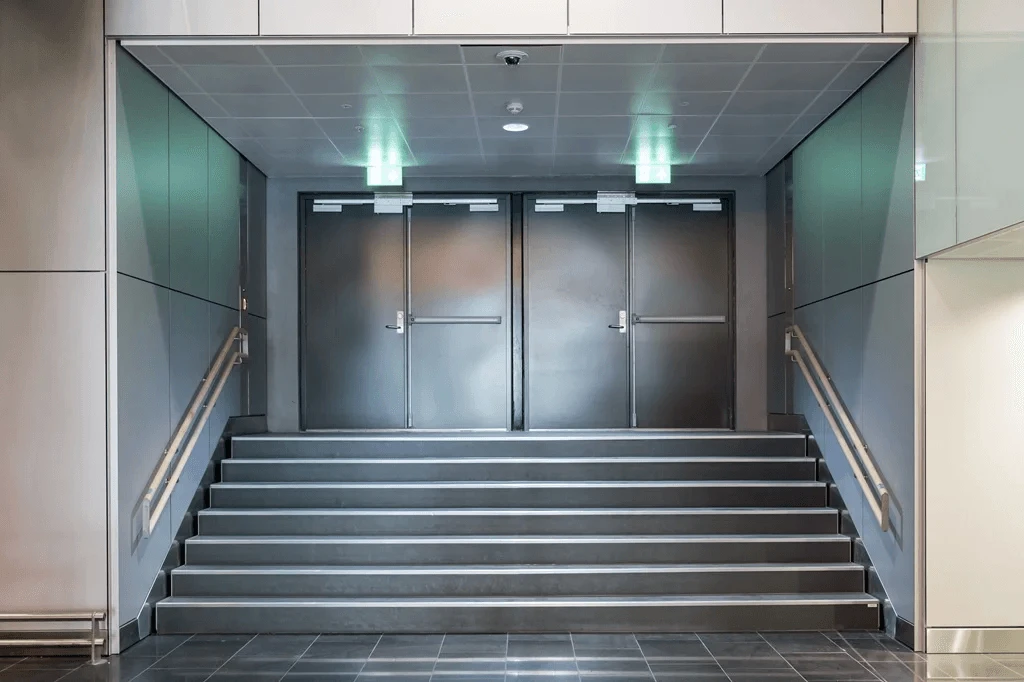
Find the Perfect Galvanized Steel Door for Your Business with Janus Steel
At Janus Steel, we understand the importance of durability, security, and low-maintenance solutions for your commercial property. Our galvanized steel doors are crafted to provide unbeatable strength and resistance to the elements, ensuring long-lasting performance for your business. Whether you’re looking to enhance security, improve curb appeal, or find a reliable door for daily use, we have the perfect option for you.
Explore our wide selection of steel doors today and let us help you find the ideal door that fits your needs perfectly. Contact us now!


